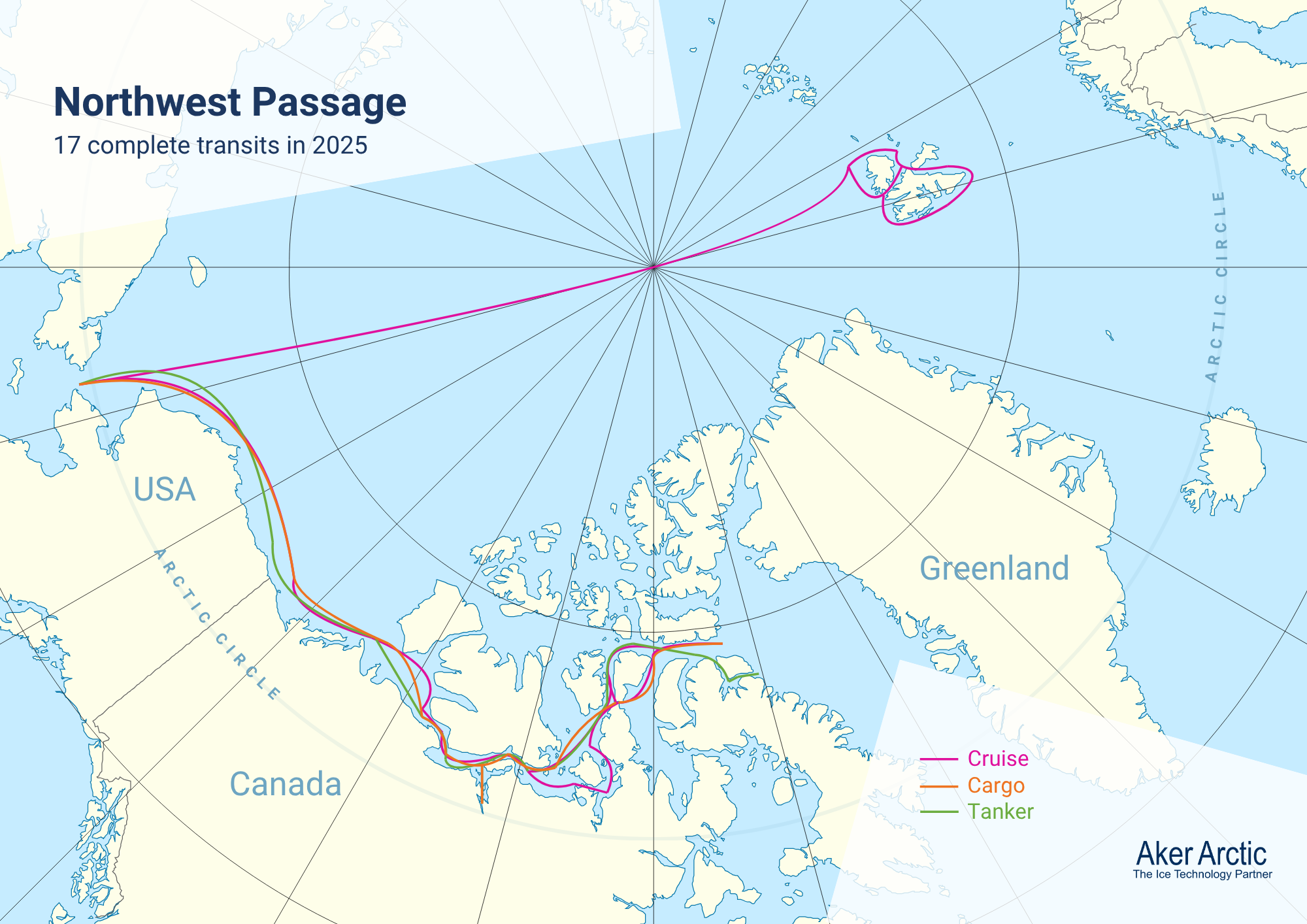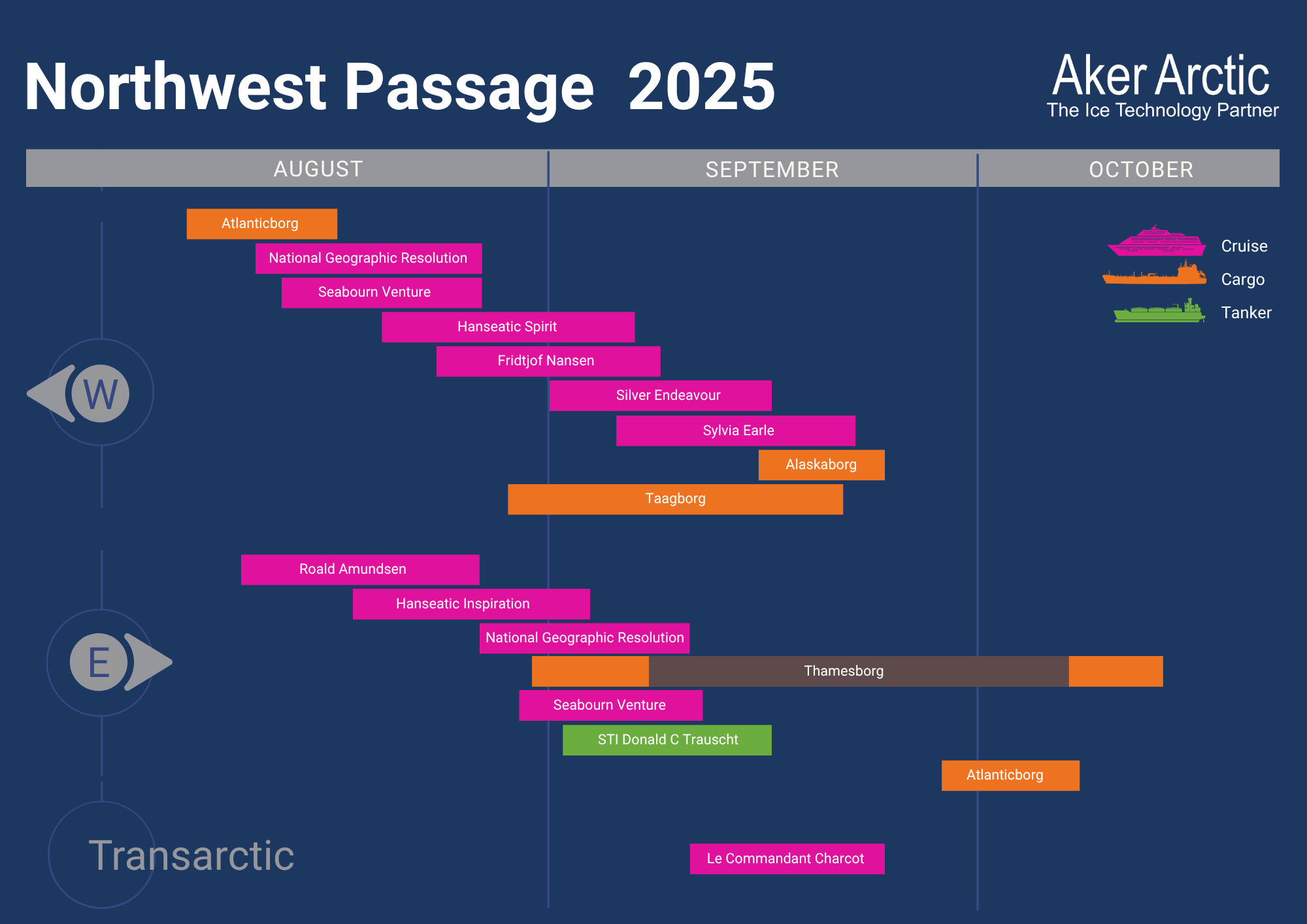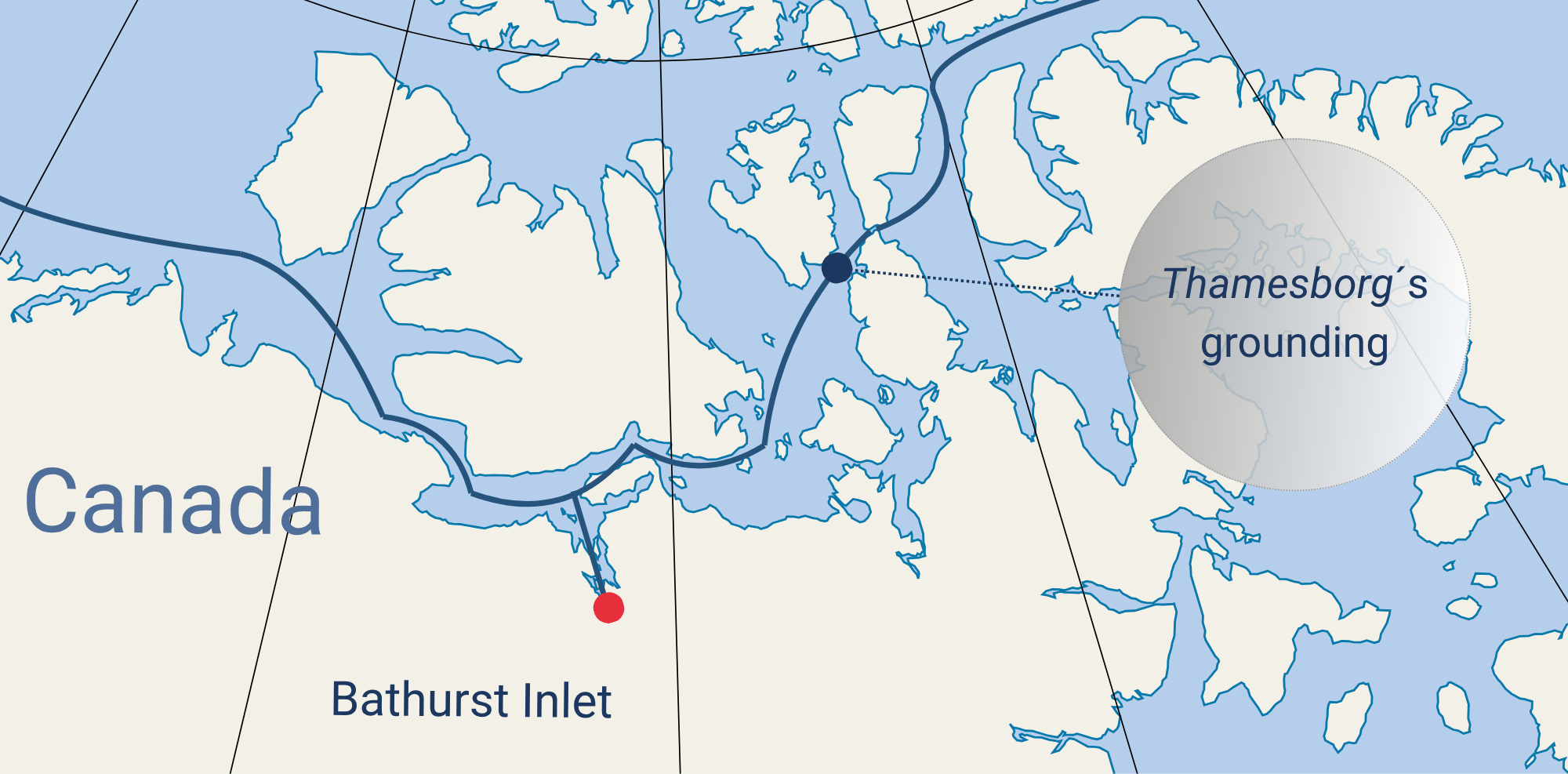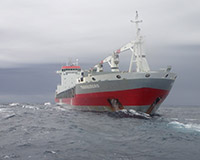International voyages on the Northwest Passage in 2025
Tuomas Romu from Aker Arctic continues to monitor international voyages along the Northwest Passage. This year’s transit season was shorter than in 2024, beginning slightly later and ending earlier.

The first vessel to enter the Northwest Passage this year was the cargo ship Atlanticborg on 6 August. The final vessel, the cargo ship Thamesborg, exited on 14 October.
A total of 13 ships completed the full route along the Northwest Passage, with three of them making a round trip within the same season. Of these transits, nine were westbound (three cargo ships and six cruise ships), and seven were eastbound (two cargo ships, four cruise ships, and one tanker). In addition, there was one transarctic crossing over the North Pole.

Most voyages were conducted by regular operators, such as the Dutch shipping company Royal Wagenborg (five transits) and various cruise liners. However, two vessels – the cruise ship Hanseatic Inspiration and the product tanker STI Donald C. Trauscht – completed their first passage.
As in previous years, regional shipping supported local communities. Baffinland’s operations at Milne Port concluded earlier than in any previous season since exports began in 2016, with significantly fewer bulk carriers loaded. This year, they operated only during the open-water season, with no icebreakers deployed at Milne.
Notable voyages
One highlight of the season was the second transarctic voyage of the expedition cruise ship Le Commandant Charcot. The Polar Class 2 vessel sailed from Svalbard to Alaska across the North Pole. Last year’s groundbreaking traverse is covered here:
The Swedish research icebreaker Oden and the Canadian icebreaker CCGS Louis S. St-Laurent also crossed the North Pole to map the seabed of the Arctic Ocean. This took place within the framework of the United Nations Convention on the Law of the Sea (UNCLOS) programme.
Alongside the geological surveys, Oden contributed to the Polar Connect initiative. The project explores the installation of new fibre-optic cables between Europe and Asia via the Arctic – an effort with the potential to provide faster and more secure global internet connectivity.
While Oden returned to Svalbard, CCGS Louis S. St-Laurent continued to the Beaufort Sea.
Among cargo vessels, Alaskaborg completed an uninterrupted international voyage from Tornio, Finland, to the Philippines. Taagborg delivered cargo at Bathurst Inlet before continuing through the Northwest Passage – an unusual pattern, as cargo ships typically either return from such destination voyages or transit without making port calls.
The tanker STI Donald C. Trauscht also completed a full passage, becoming only the fifth tanker to do so. In past years, she discharged cargo at Bathurst Inlet before turning back, but this season she continued eastward, eventually circumnavigating North America by returning to the West Coast via the Panama Canal.

Safety incidents
While most voyages were uneventful, two incidents underscored the risks of Arctic navigation.

On 6 September, the Dutch cargo vessel Thamesborg ran aground in Franklin Strait, near the uninhabited Tasmania Islands. Canadian icebreakers quickly responded to supervise the situation, and the cargo was transferred to two other vessels. The ship remained stranded for five weeks before being refloated with assistance from the Estonian multi-purpose icebreaker MSV Botnica and the local tugboat Beverly M I.
Fortunately, there were no injuries or pollution, but the episode serves as a reminder of the urgent need for enhanced safety measures. Navigational charts of the Northwest Passage remain incomplete, and local emergency resources are limited, highlighted by the necessity of bringing in an icebreaker from across the Atlantic.
A second, smaller incident occurred when the cargo vessel Tiberborg was forced to turn back before attempting a westbound transit due to mechanical problems. While unrelated to ice or shallow waters, such technical issues are increasingly likely as more ships attempt the route, emphasising the need for preparedness.
As winter sets in, shipping activity on the Northwest Passage is winding down. The next international transits are expected in late July or early August 2026. For further details, the Scott Polar Research Institute maintains extensive records of Northwest Passage voyages, including those of smaller recreational boats.
Irresponsible shipping on the Northern Sea Route
Aker Arctic has not actively monitored the Northern Sea Route since 2022, but activity there remains high. Many vessels transiting the route are older, sanction-bound oil tankers with inadequate ice strengthening, transporting Russian crude oil to China.
Some of these vessels have been delayed or rerouted due to persistent sea ice from last winter in the East Siberian Sea. Compared with the Northwest Passage, such operations have been widely criticised in international media as irresponsible.
Text: Catarina Stewen

